We may not have the course you’re looking for. If you enquire or give us a call on +46 850282424 and speak to our training experts, we may still be able to help with your training requirements.
Training Outcomes Within Your Budget!
We ensure quality, budget-alignment, and timely delivery by our expert instructors.
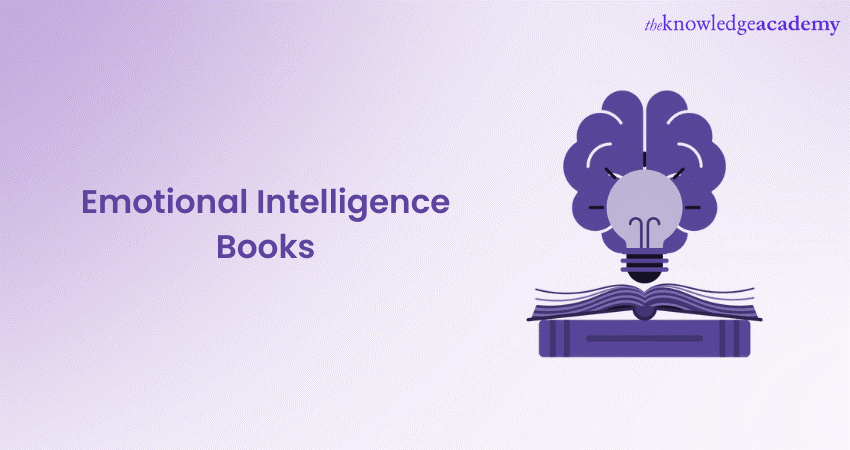
Are you taking your first steps into learning about Emotional Intelligence (EI)? Are you looking to refine your existing EI skills? If yes, then Emotional Intelligence Books can become your pathway to unlocking a world of improved relationships, effective communication, and heightened self-awareness.
According to Statista, more than 52 per cent of organisations worldwide hire employees for senior and mid-management roles based on their Emotional Intelligence skills. Being level-headed and empathetic has become an important corporate skill today.
You, too, can impress your employers by expanding your horizons and embarking on a journey of self-discovery. Read this blog to explore a handpicked selection of Emotional Intelligence Books that will provide essential insights and techniques to enhance your EI.
Table of Contents
1) Top Emotional Intelligence Books
a) Emotional Intelligence: Why It Can Matter More Than IQ
b) Primal Leadership: Unleashing the Power of Emotional Intelligence
c) Working with Emotional Intelligence
d) Emotional Intelligence 2.0
e) Emotional Intelligence for Dummies
f) Emotional Intelligence for Sales Success
g) Leadership: The Power of Emotional Intelligence
h) Becoming a Resonant Leader: Develop Your Emotional Intelligence, Renew Your Relationships, Sustain Your Effectiveness
i) The Emotionally Intelligent Manager: How to Develop and Use the Four Key Emotional Skills of Leadership
j) At the Heart of Leadership: How to Get Results with Emotional Intelligence
2) Conclusion
Top Emotional Intelligence Books
In this collection, we've compiled the most insightful and influential books that explore Emotional Intelligence and its impact on various aspects of human lives. Discover wisdom, practical tips, and strategies to enhance Emotional Intelligence and enrich your personal and professional life. Let these books be your guide on this transformative journey. So, let’s have a detailed look at some of the Emotional Intelligence Books:
1. Emotional Intelligence: Why It Can Matter More Than IQ
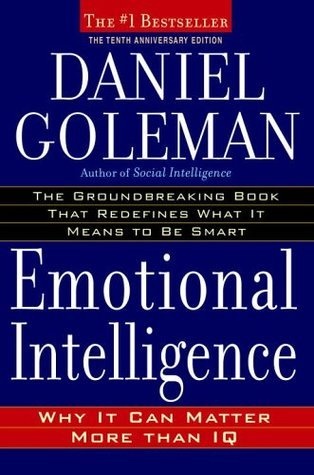
Often referred to by the title, “Emotional Intelligence”, this seminal Emotional Intelligence Book by Daniel Goleman introduced and mainstreamed the concept of EI amongst the public. In the book, Goleman argues that EI, or Emotional Quotient (EQ), can be more critical to success in life than traditional intelligence, better known as Intelligence Quotient or IQ. He presents extensive research from various fields, including psychology, neuroscience, and education, to support his claims.
The central thesis of the book is that EI, which includes self-awareness, self-regulation, empathy, and social skills, plays a crucial role in shaping human behaviour and relationships. Moreover, Goleman explains how it influences various aspects of life, including personal relationships, work performance, leadership, and overall well-being.
2. Primal Leadership: Unleashing the Power of Emotional Intelligence
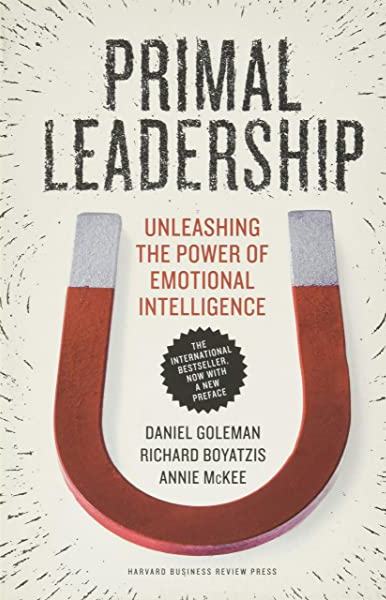
Another book by Daniel Goleman, written alongside Richard Boyatzis and Annie McKee, “Primal Leadership: Unleashing the Power of Emotional Intelligence”, draws on the authors’ consulting experiences and deals with styles of leadership.
The book expands on the concept of Emotional Intelligence, emphasising its significance in leadership and how leaders can utilise it to create positive and productive work environments. Goleman and his co-authors argue that effective leadership goes beyond technical competence and cognitive abilities. They also mention that EI is necessary to inspire and motivate teams.
Moreover, the book is based on extensive research and case studies with anecdotal evidence. It illustrates how EI shapes an individual’s leadership styles and efficacy. The book has something to offer for everyone from aspiring managers to company executives, focusing mainly on aspects to improve in their leadership style and creating a positive work environment.
Unleash your potential and achieve greatness with our Motivation And Goal Setting Training – Sign up now!
3. Working with Emotional Intelligence
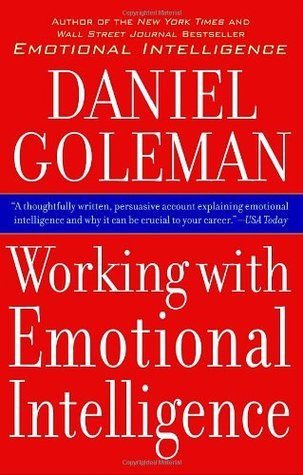
"Working with Emotional Intelligence", also written by Daniel Goleman, builds on his previous works. It specifically focuses on how EI can be applied and utilised in the workplace. The author argues that EI significantly affects professional success and effectiveness. It is as important as technical skills and cognitive intelligence, if not more, in, building relationships and leading entire departments.
Goleman draws on research, case studies, and real-world examples to support his arguments throughout the book. "Working with Emotional Intelligence" serves as a valuable resource for individuals who want to harness the power of EI in the workplace.
This book is particularly relevant for professionals, managers, and leaders who want to develop their EI to become more potent in their roles. It is also beneficial for people who want to impact their organisations positively.
4. Emotional Intelligence 2.0
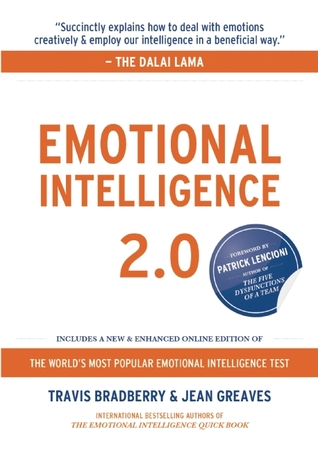
Authored by Travis Bradberry and Jean Greaves, "Emotional Intelligence 2.0" is a book that builds upon the concept of EI. It presents a step-by-step program to help readers enhance their EI skills. The book is designed to be a practical guide, providing readers with strategies and tools to improve their EI in various areas of life. It covers varied range of topics, including personal relationships and the workplace.
Further, the book includes online self-assessment for readers to evaluate their Emotional Intelligence based on the four key components of EI. It also has practical strategies and personalised development plans for readers to develop and work on their EI.
Moreover, the book has been well-received for its practical approach to Emotional Intelligence development with tangible steps. As a result, it helps improve their EI skills and apply them in their daily lives.
5. Emotional Intelligence for Dummies
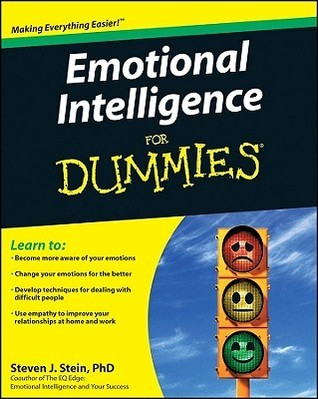
“Emotional Intelligence for Dummies” by Stephen J. Stein is part of the popular “For Dummies series. It aims to simplify dense concepts of EI and make them more accessible for the casual reader. Further, it provides readers with an accessible and user-friendly introduction to the concept of EI and how to develop and apply its skills in everyday life.
As the reader delves deeper into the book, they come across quantifiable ways to measure EI in everyday life. It provides practical advice and tools for individuals who wish to enhance their Emotional Intelligence Skills and use these skills in their personal and professional lives.
As with other books in the "For Dummies" series, this book is structured in a clear and straightforward manner. This makes it a helpful resource for anyone interested in understanding and developing Emotional Intelligence.
6. Emotional Intelligence for Sales Success
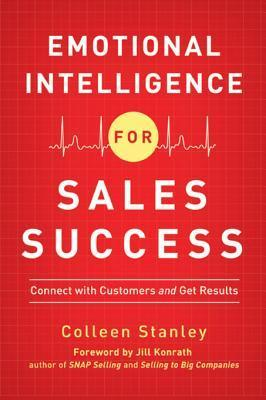
Author Colleen Stanley has written “Emotional Intelligence for Sales Success” to specifically address how this skill can be harnessed to enhance performance in sales. This is one of the Emotional Intelligence Books focusing on building stronger customer relationships by developing EI through self-awareness, self-regulation, empathy and social skills.
The book also addresses the role of EI in handling roadblocks and dealing with difficult customers in a constructive and collected fashion. It is designed to help sales professionals understand the role of Emotional Intelligence in sales. Further, the book provides practical guidance on how to leverage it to improve sales effectiveness.
“Emotional Intelligence for Sales Success” is particularly useful for sales representatives, sales managers, and anyone in the sales industry looking to enhance their sales skills. As the readers understand the nuances of EI, they build better customer relationships and achieve greater success in their sales endeavours.
7. Leadership: The Power of Emotional Intelligence
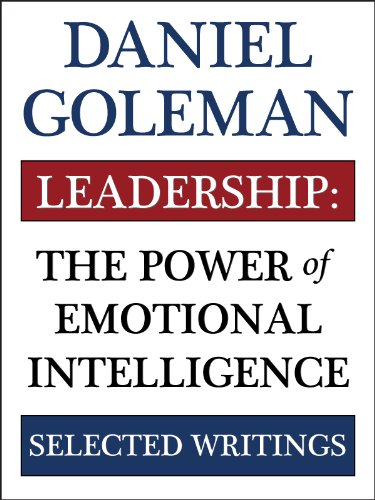
A collection of Daniel Doleman’s finest works, “Leadership: The Power of Emotional Intelligence”, not only focuses EI but covers leadership and organisational performance as well. The book includes articles on “Leadership that gets Results”, “What makes a Leader”, “The Social Brain”, “The Sweet Spot for Achievement”, etc.
Further, the book explains the correlation between Emotional Intelligence and corporate skills and how one complements the other. It contains a wide range of topics catering to almost every segment of the corporate ladder. The book encapsulates everything from showing initiative and taking up more responsibility to leading by example and maintaining a positive work culture.
8. Becoming a Resonant Leader: Develop Your Emotional Intelligence, Renew Your Relationships, Sustain Your Effectiveness
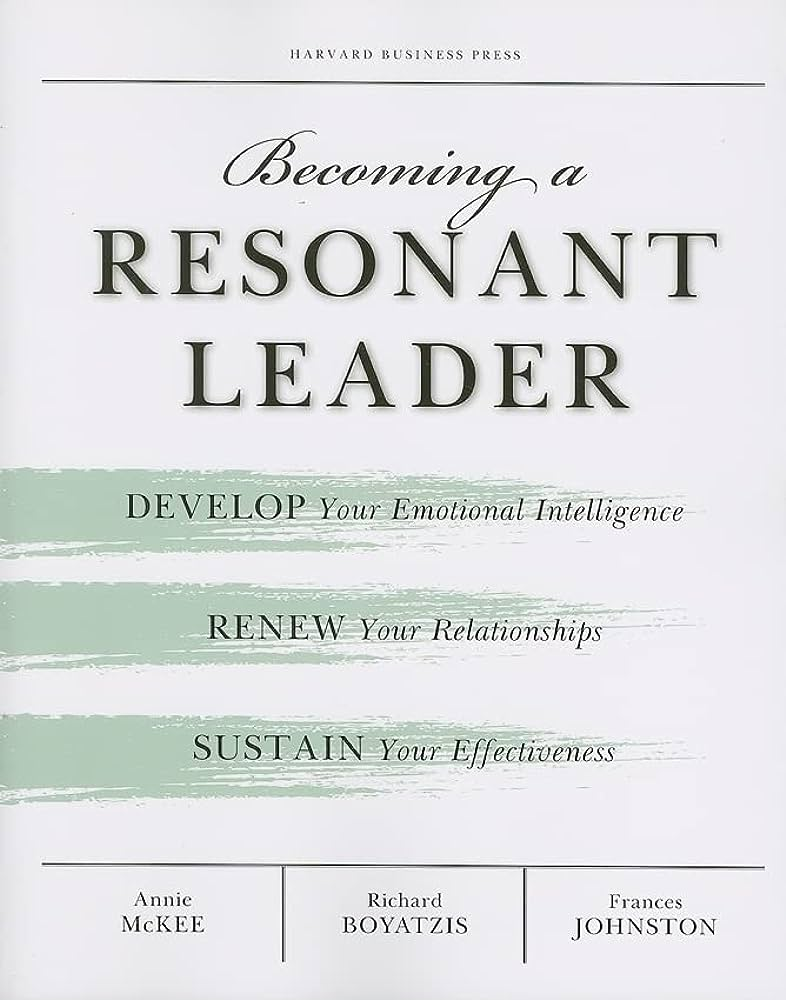
“Becoming a Resonant Leader” is written by Annie McKee, Richard Boyatzis, and Frances Johnston-Marshall. It explores the concept of resonant leadership and the role of Emotional Intelligence in becoming an effective and impactful leader.
By introducing the concept of resonant leadership, this book emphasises the Importance of Emotional Intelligence in leadership. Resonant leaders are ones who create positive emotional resonance in their teams and promote an atmosphere of trust, engagement, and motivation.
The book is geared towards leaders at all levels and provides insights and tools to help leaders connect with their emotions and those of others under them. This creates a positive work environment and inspires their teams to achieve higher performance levels.
It is a useful resource for anyone willing to learn about the connection of Emotional Intelligence in Leadership. The book also offers practical guidance for those looking to become more resonant and impactful leaders in their respective roles.
9. The Emotionally Intelligent Manager: How to Develop and Use the Four Key Emotional Skills of Leadership
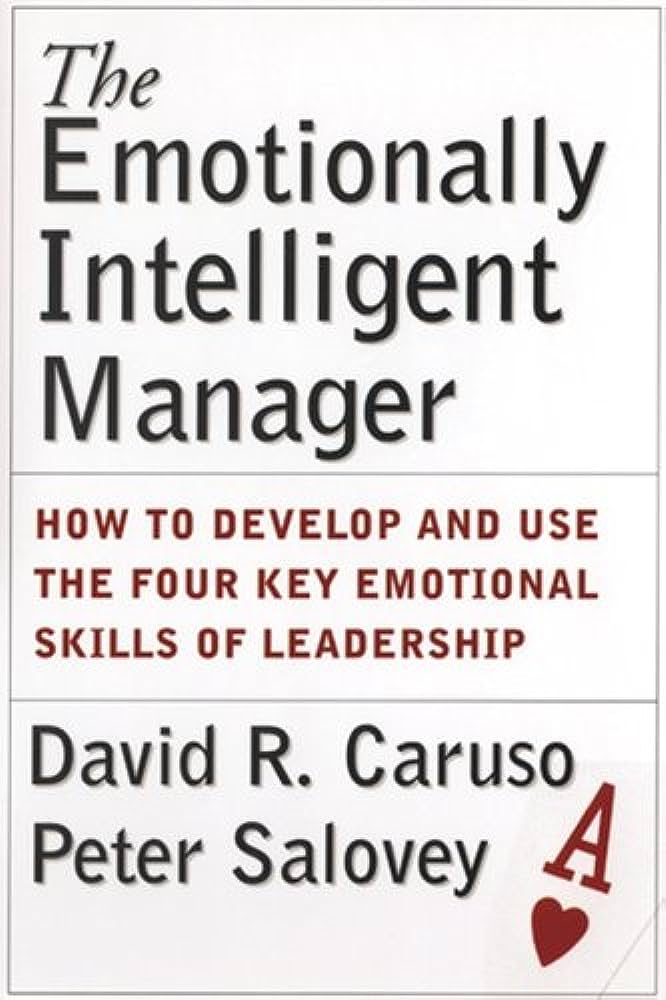
Authors David Caruso and Peter Salovey try and focus on practical applications of Emotional Intelligence with their book, “The Emotionally Intelligent Manager”. It provides practical guidance for managers on ways to enhance their Emotional Intelligence by focusing on four key emotional skills. Those skills are as follows:
a) Perceiving emotions
b) Using emotions
c) Understanding emotions
d) Managing emotions
The book provides numerous real-world examples and case studies to emphasise the applications of Emotional Intelligence in various leadership conundrums. The authors preach and emphasise the need for continuous development for managers to improve their EI and leadership qualities.
It is one of the well-regarded Emotional Intelligence Books for its practical approach. It also has become a valuable resource for individuals seeking to understand and develop Emotional Intelligence skills for managerial success.
10. At the Heart of Leadership: How to Get Results with Emotional Intelligence
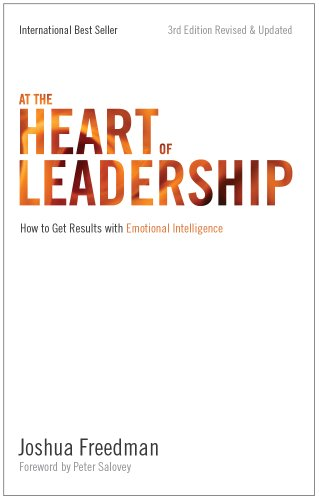
“At the Heart of Leadership” by Joshua Freedman simplifies Emotional Intelligence and breaks it down into three everyday actions. These actions include the following:
a) Know yourself
b) Choose yourself
c) Give yourself
The book heavily draws from factual research-based anecdotes but breaks them down in a lucid and easy-to-read fashion. The author also provides explicit examples to harness EI and improve performance both at a personal and professional level.
Relying on his experience from working at the United States Navy, FedEx, HSBC and many more, the author introduces the “Six Seconds EQ Model.” it instructs the readers on ways in which they can better handle emotions.
Discover the power of Emotional Intelligence and elevate your leadership skills with our Emotional Intelligence Training – Sign up today!
11. Thinking, Fast and Slow
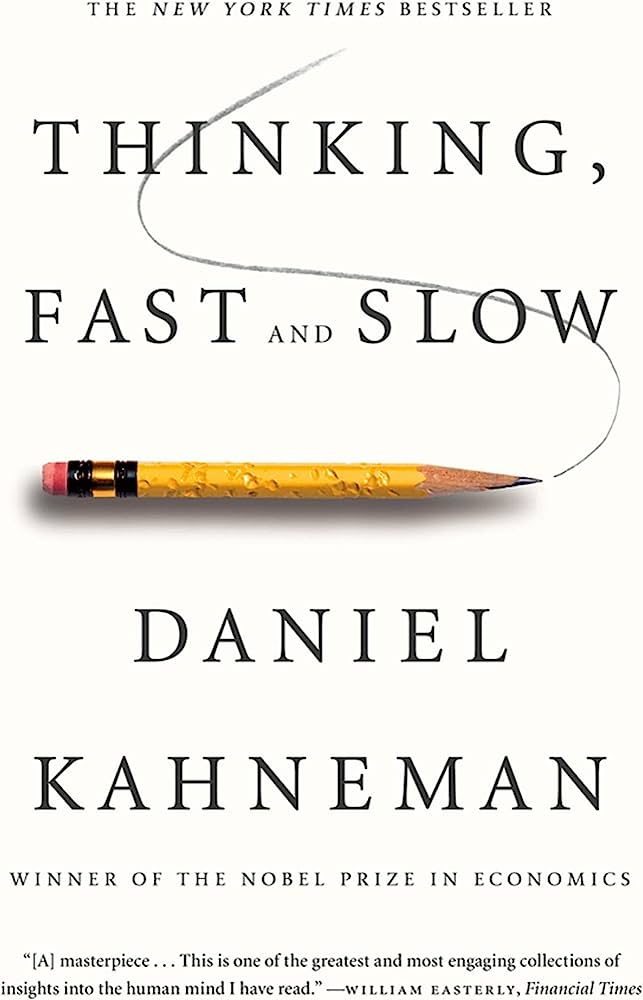
“Thinking, Fast and Slow” is a highly influential book written by renowned psychologist and Nobel laureate in Economics, Daniel Kahneman. It has impacted readers from varied fields, including psychology, behavioural economics, and decision-making.
The book proposes and explores the two systems governing human thinking, ‘System 1’ which is fast thinking and ‘System 2’ which is slow thinking. Throughout the book, Kahneman delves into various cognitive biases and limitations of human thinking.
Further, the book demonstrates how these biases influence decision-making in various contexts, including economics, business, and everyday life. He provides numerous real-world examples and research findings to illustrate his concepts. As a result, the author offers valuable insights into one’s thought processes.
"Thinking, Fast and Slow" has been appreciated for its captivating writing style and its ability to make complex psychological concepts accessible to a general audience. It remains a popular book for anyone interested in gaining an in-depth understanding of human thought and decision-making.
12. Emotional Intelligence Pocketbook: Little Exercises for an Intuitive Life
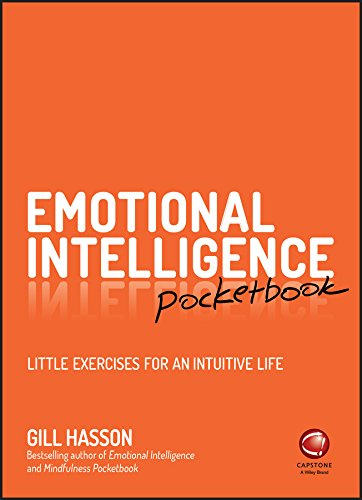
"Emotional Intelligence Pocketbook" is a practical guide written by Gill Hasson. The book, while focusing on EI, offers a collection of exercises and techniques. As a result, it helps readers develop and enhance their EI skills.
The author is a personal and business coach who has written several books on communication, Emotional Intelligence, and other self-help topics. In this pocketbook, she provides readers with practical advice, strategies, and exercises to improve their emotional awareness, empathy, communication, and relationship skills.
The pocketbook format means that the book is a concise and easy-to-carry resource. This makes it convenient for readers to access and apply the concepts in their daily lives. The book helps the readers develop their Emotional Intelligence and build stronger relationships. So, if you are looking to enhance your EI skills, this pocketbook could be a valuable resource for you.
13. A Practical Guide to Emotional Intelligence: Get Smart about Emotion
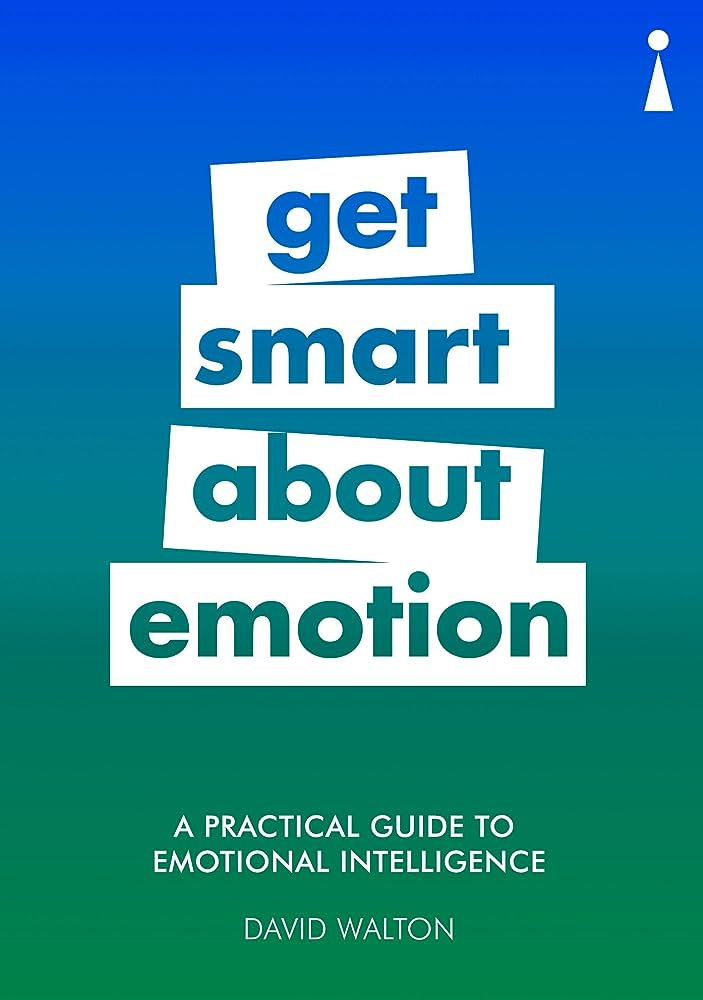
“A Practical Guide to Emotional Intelligence” is written for team and floor managers looking to improve their interpersonal skills in a professional setting. Authored by David Walton, a behavioural change specialist, the book provides a fresh perspective and overview of Emotional Intelligence.
It contains exercises and daily activities aimed towards self-control, empathy and influencing others. Though a relatively short read, the book places heavy emphasis on personal development. It also focuses on effective communication, decision-making and building healthy relationships.
14. Quick Emotional Intelligence Activities for Busy Managers: 50 Team Exercises That Get Results in Just 15 Minutes
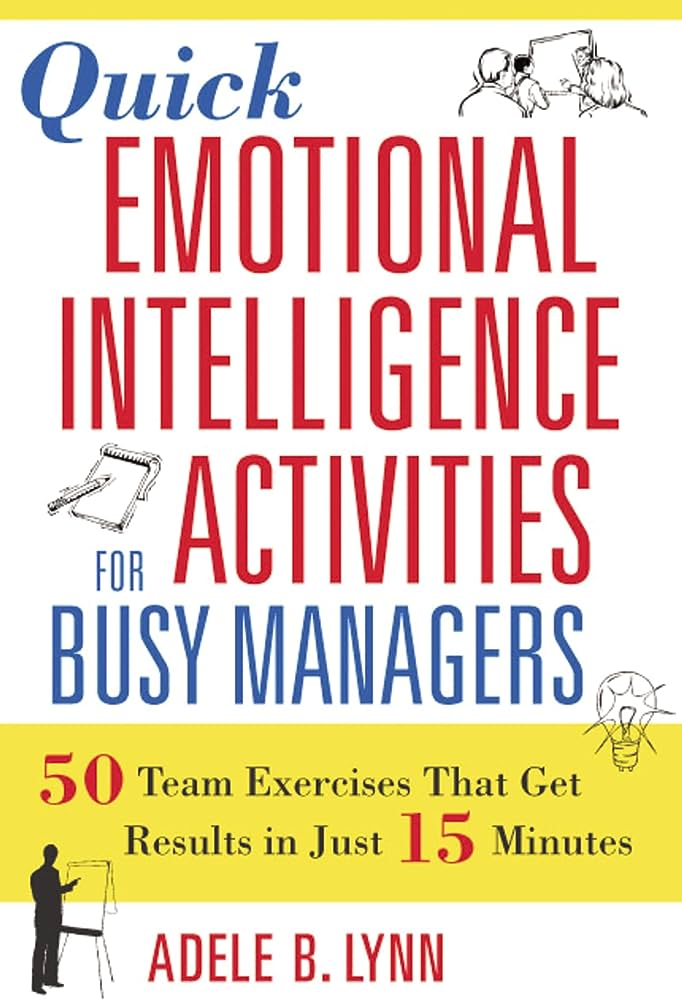
As the name suggests, "Quick Emotional Intelligence Activities for Busy Managers" is designed to provide busy managers with practical and time-efficient exercises and activities. It helps them develop and enhance their Emotional Intelligence skills.
The book argues that EI is a crucial skill for managers as it helps them understand and handle their and team members' emotions. It also advocates that by Improving Emotional Intelligence, managers can engender a positive and productive work environment, enhance communication, and make better decisions.
Moreover, the book is structured in a reader-friendly format, with concise explanations of each activity and guidelines to implement them in everyday managerial scenarios. Since managers often have limited time for personal development, these activities are designed to be easily integrated into their busy schedules.
15. 105 Tips for Creating an Emotionally Intelligent Organization: More Success by Focusing on Work Attitude and Motivation
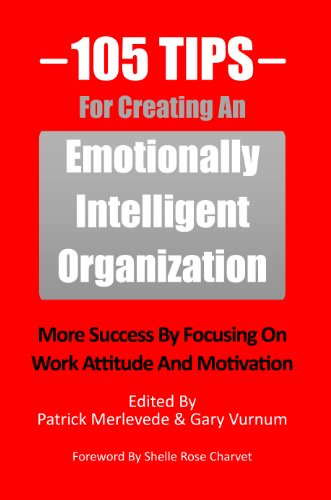
This is an e-book written by a self-help professional named Gary Vurnum and jobEQ.com founder Patrick Merlevede. “105 Tips for Creating an Emotionally Intelligent Organization” delves into what emotionally intelligent organisations are and why they are needed today. According to the authors, emotionally intelligent organisations are workplaces where people’s emotions are acknowledged and taken into consideration.
Merledeve and Vurnum utilise their own consulting and coaching experiences and advise managers on different stages of the “talent lifecycle.” It goes into depth on topics like recruiting with EI and developing staff by using EI. It also focuses on fostering friendly and cordial relationships in the team.
The book has over a hundred tips for how employees can empathise, collaborate, and motivate each other. As a result, employees can pool their strengths and become even more productive than before.
Enhance your Emotional Intelligence by working on your Active Listening Skills with our Active Listening Skills Course today!
16. Raising an Emotionally Intelligent Child

Are you a parent, caretaker or teacher looking to engrain Emotional Intelligence in your children? If yes, then “Raising an Emotionally Intelligent Child” by John Gottman can become a valuable resource for you.
John Gottman is a renowned psychologist and expert in relationship dynamics. While Joan DeClaire is a writer and journalist, together they have provided valuable insights and practical strategies for nurturing Emotional Intelligence in children from infancy through adolescence.
Overall, "Raising an Emotionally Intelligent Child" is a practical guide that empowers parents and caregivers to build emotionally healthy and resilient children. The book argues that EI is critical in a child's social and emotional development. It impacts their relationships, communication, and overall well-being. Therefore, for anyone looking to enhance their child’s EI, this book equips adults with tools to support their emotional growth.

17. How to Raise a Child with a High EQ: A Parents’ Guide to Emotional Intelligence
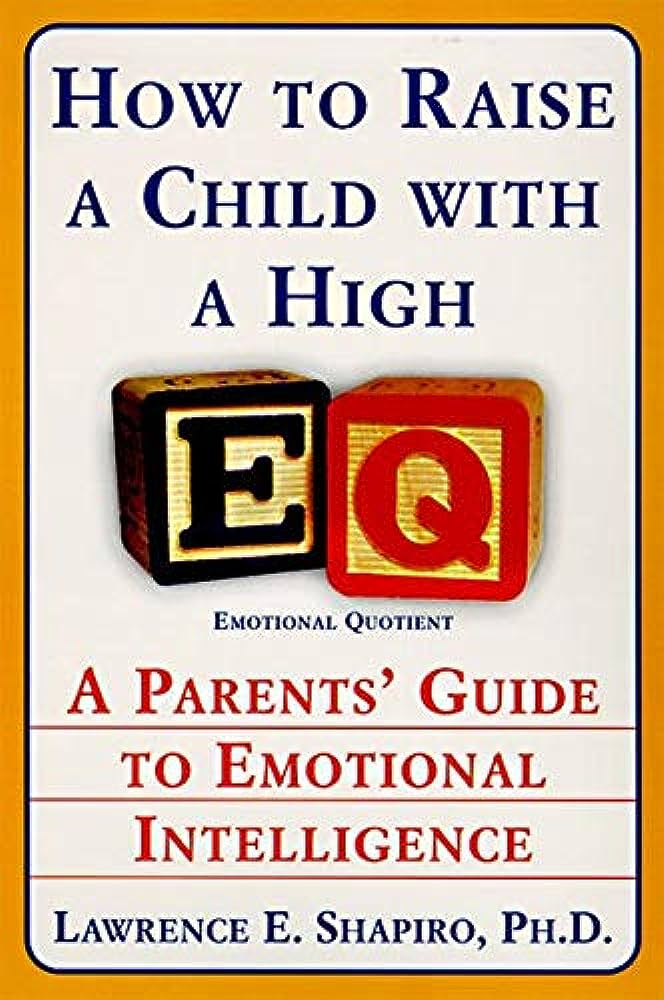
Child psychologist Lawrence Shapiro describes a rewarding journey of fostering emotional awareness, empathy and social skills in children with this book. It is one of the renowned Emotional Intelligence Books encouraging parents to be emotionally intelligent role models. It also encourages parents to let their children emotionally express themselves in a safe and non-judgmental environment.
Written over 20 years ago, although some of the neuroscientific bases in the book may be outdated, it remains a practical guide. It is full of activities and checklists with actionable guides for parents. The author meticulously delves into parenting, Emotional Intelligence, child development, and raising a child with a high emotional quotient. As a result, he motivates parents to be expressive and let their children become emotionally intelligent beings.
18. The EQ Edge: Emotional Intelligence and Your Success
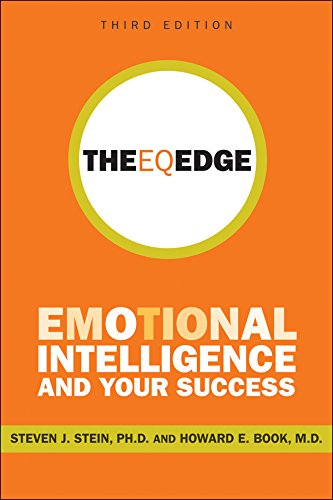
"The EQ Edge: Emotional Intelligence and Your Success" is a book written by Steven J. Stein and Howard E. Book. It has been widely acclaimed for its insights into EI and its impact on personal and professional success.
The authors explore the concept of Emotional Intelligence and its influence on various aspects of life, including career success, leadership, relationships, and overall well-being. It also offers a comprehensive understanding of EI and practical strategies for developing and applying EQ in real-life situations.
Stein and Book have designed the book to be accessible to a general audience with practical guidance for readers to apply Emotional Intelligence to their daily lives. It is suitable for individuals looking to enhance their self-awareness, strengthen relationships, and improve their overall emotional well-being.
19. The Language of Emotions: What Your Feelings are Trying to Tell You
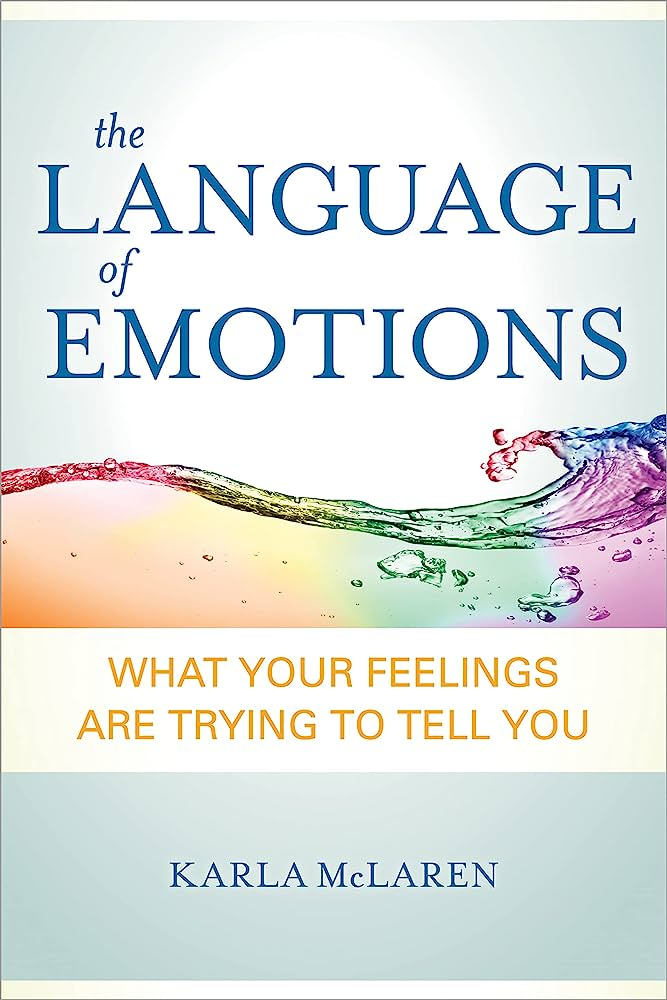
Karla McLaren, a writer, researcher, and empath, draws on her extensive knowledge of emotions in the book “The Language of Emotions”. The book provides a unique perspective on the purpose and messages an individual's feelings are trying to convey.
She believes that emotions are messengers and serve a valuable purpose in our lives. Further, the book emphasises the importance of emotional awareness. It also encourages readers to become more conscious of their emotions and bodily sensations.
"The Language of Emotions" is praised for its insightful and compassionate approach to emotions. It offers readers a new way to relate to their feelings, fostering Emotional Intelligence, and supporting personal development.
So, suppose the readers are interested in understanding their own emotions or improving relationships by empathising with others. In that case, this book provides valuable guidance and tools to navigate the rich world of emotions.
20. The Emotional Life of Your Brain
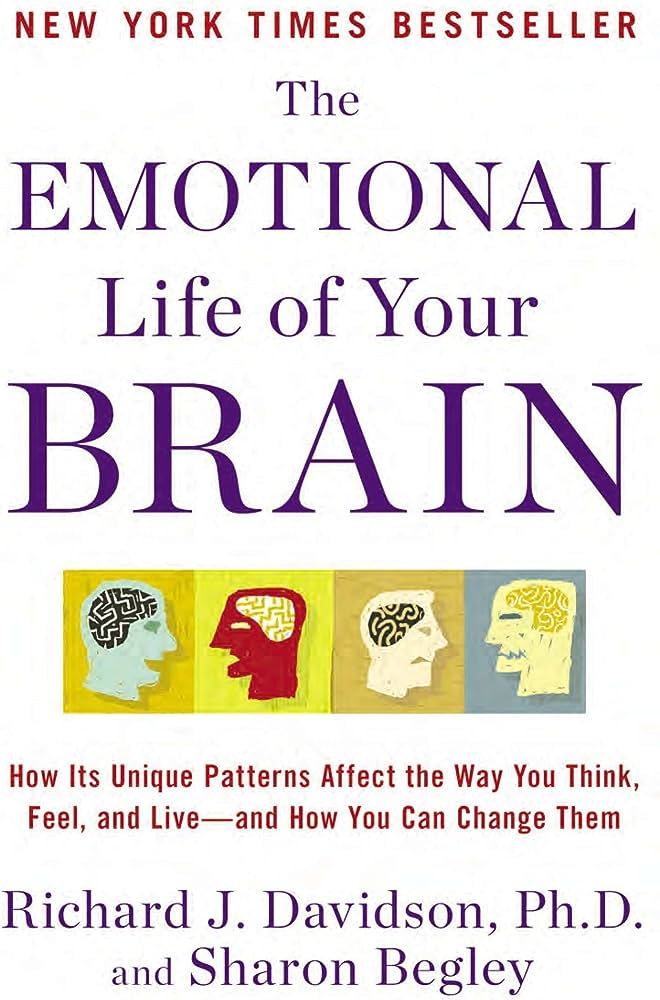
This book is written by Richard J. Davidson, a renowned neuroscientist and researcher in affective neurosciences. Here, the author delves into the scientific understanding of emotions and their neurological underpinnings.
He explains how the brain processes emotions and how individual brain patterns can influence their daily emotional experience and responses. Further, "The Emotional Life of Your Brain" blends scientific research with personal anecdotes, making it accessible to a broad audience interested in the intersection of neuroscience, emotions, and personal development.
As the readers delve deeper into the book, they better understand their emotional experiences. They are also equipped with the tools to shape their emotional lives positively.
Learn to manage your stress and look after your brain’s emotional well-being with our Stress Management Training Course!
21. Dare to Lead
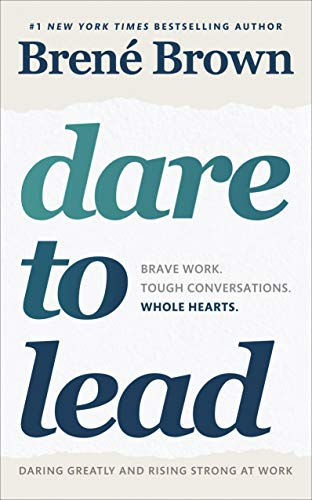
In "Dare to Lead," author Brené Brown inspects the concept of leadership and how embracing vulnerability, courage, and empathy can transform the way we lead others. The book draws from her extensive research on shame, vulnerability, and resilience and presents valuable insights for leaders across different fields.
It encourages the readers to cultivate daring leadership styles by addressing shame and fear, embracing failure and growth, and promoting good values and trust in the team.
The book is praised for its thought-provoking insights, actionable advice, and vulnerability-driven approach to leadership. It offers readers a fresh perspective on what it means to be an effective and courageous leader, inspiring them to create positive and transformative change within their teams and organisations.
22. In My Heart: A Book of Feelings
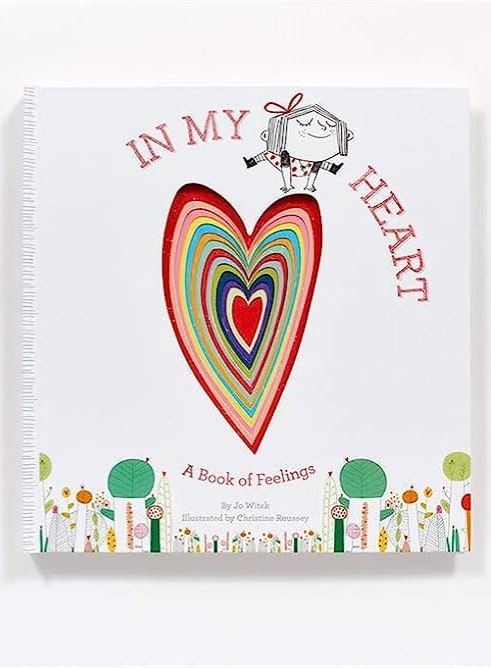
"In My Heart: A Book of Feelings" is a children's book written by Jo Witek and illustrated by Christine Roussey. The book has been widely popular for its ability to introduce young children to a range of emotions in an engaging and relatable way.
Featuring simple, poetic text and delightful illustrations, the book follows a young girl as she experiences different emotions throughout her day. Each page represents a different emotion, such as happiness, sadness, bravery, anger, calmness, and love. The little girl describes how each emotion feels "in her heart" with vivid and imaginative language.
The story helps children identify and understand their emotions, encouraging them to openly express and talk about their feelings. It also provides a safe space for children to explore their emotional landscape and learn to normalise different emotions.
23. Go Suck a Lemon: Strategies for Improving Your Emotional Intelligence
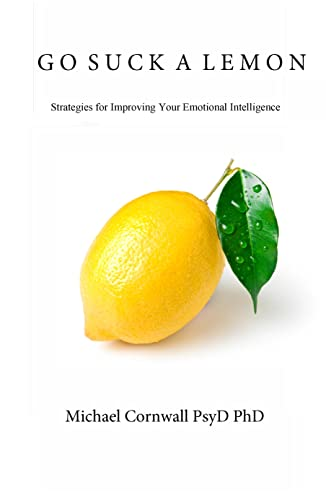
"Go Suck a Lemon: Strategies for Improving Your Emotional Intelligence" is written by Michael Cornwall. It is filled with practical strategies and exercises for enhancing EI in everyday life. The title, "Go Suck a Lemon," might appear provocative, but it is symbolic of a popular EI exercise. The phrase suggests that when an individual encounters negative emotion, like the sourness of a lemon, they have the choice to either react negatively or to manage their emotions effectively.
Further, the book provides real-life examples and case studies illustrating the effectiveness of the suggested strategies. It also includes practical exercises and self-assessment tools to help readers apply the principles of Emotional Intelligence in their lives.
"Go Suck a Lemon" is designed to be accessible to as wide an audience as possible and is beneficial for anyone interested in improving their EI and overall emotional well-being. Therefore, the book encourages readers to take charge of their emotions, leading to more fulfilling and balanced lives.
24. The Empathy Factor: Your Competitive Advantage for Personal, Team and Business Success
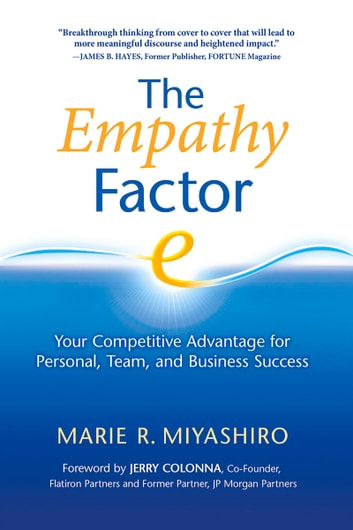
"The Empathy Factor: Your Competitive Advantage for Personal, Team, and Business Success" is written by Marie R. Miyashiro, exploring the importance of empathy in various aspects of life. The book presents empathy as a powerful and essential skill that can lead to positive outcomes in both personal and professional settings.
Marie R. Miyashiro, a seasoned leadership consultant and communication expert, provides insights into how empathy can be a competitive advantage in today's interconnected and fast-paced world. The book is suitable for leaders, managers, and individuals seeking to cultivate empathy as a core skill in their personal and professional lives.
By promoting empathy, the book suggests that individuals and organisations can create more harmonious and successful environments. It also advises them to foster stronger connections with others.
25. Wired to Care: How Companies Prosper When They Create Widespread Empathy
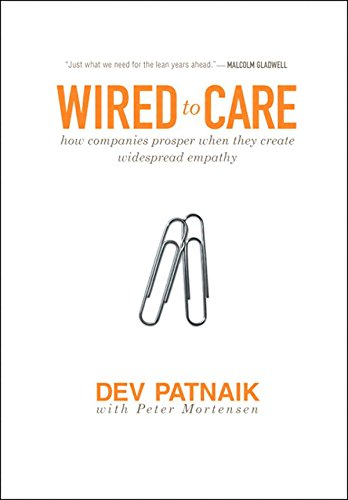
"Wired to Care," written by Dev Patnaik, with Peter Mortensen, is one of the best Emotional Intelligence Books that has gained recognition for its insights into the importance of empathy in business. It is also known for its impact on customer experience and overall success.
Author Dev Patnaik, the founder and CEO of Jump Associates, a strategy and innovation consultancy, explores how empathy can be a powerful driver for business growth and innovation. Further, the book emphasises that successful companies are those that truly understand and care about the needs, desires, and emotions of their customers and employees.
The book also offers valuable lessons for business leaders, marketers, and professionals seeking to create a customer-focused culture and drive innovation through empathy. By understanding and connecting with customers on a deeper emotional level, companies can better position themselves to meet customer needs, build strong relationships, and achieve long-term success in the marketplace.
Learn how to prioritise your Emotional Intelligence by signing up for our Sentiment Analysis Training!
Conclusion
Emotional Intelligence has become a vital aspect of personal and professional development. Reading good Emotional Intelligence Books can provide valuable insights and tools to enhance EI and mental well-being. These books cater to a wide variety of audiences ranging from leaders and parents to individuals seeking personal growth. So, embrace the importance of EI and achieve success.
Embrace personal growth with our transformative Personal Development Training – Sign up now!







 Top Rated Course
Top Rated Course



 If you wish to make any changes to your course, please
If you wish to make any changes to your course, please


